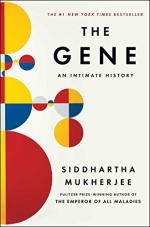|
This section contains 683 words (approx. 2 pages at 400 words per page) |

|
Summary
The Human Genome Project meant that "it was no longer necessary to use pathology to define the borders of normal physiology" (329). The map of the human genome made it possible to better understand normalcy. Mukherjee then discusses what genes can tell us about the origins of human beings. After outlining some now-debunked theories about the origins of different races and the relationship between humans and Neanderthals, Mukherjee writes about the work of Allan Wilson. Wilson and his students used mitochondrial DNA, to conclude that "modern humans appear to have emerged exclusively from [...] somewhere in sub-Saharan Africa, about one hundred to two hundred thousand years ago, and then migrated northward and eastward to populate the Middle East, Europe, Asia, and the Americas" (335). Studies on mitochondrial DNA also show that "each of us can trace our mitochondrial lineage to a single...
(read more from the "So, We's the Same" (Part Five) Summary)
|
This section contains 683 words (approx. 2 pages at 400 words per page) |

|




